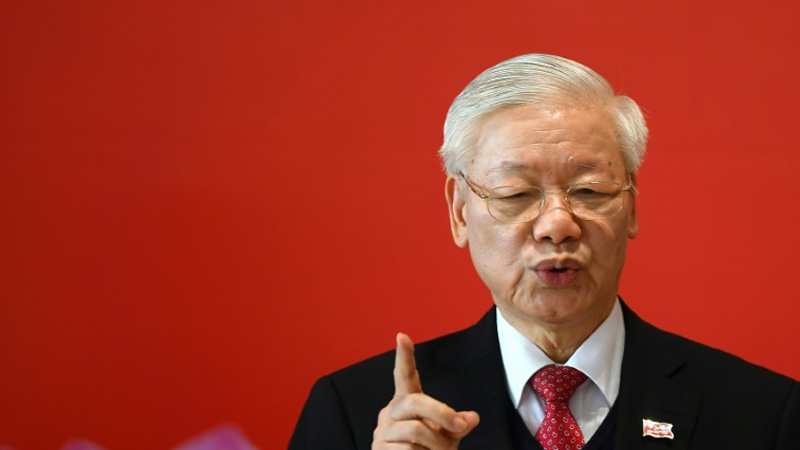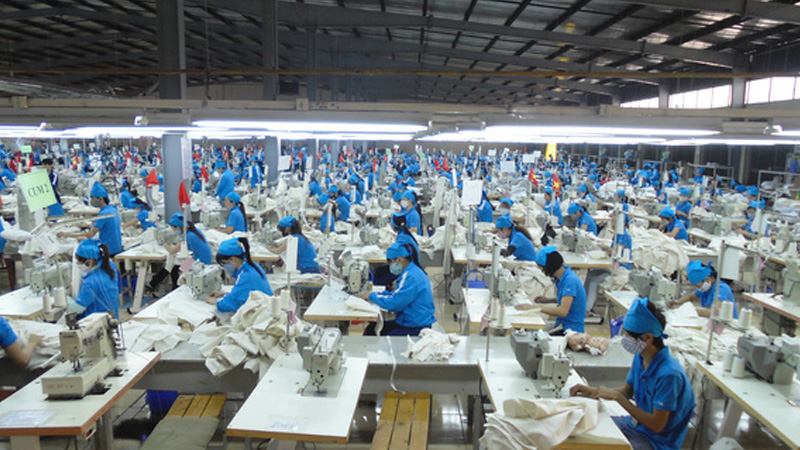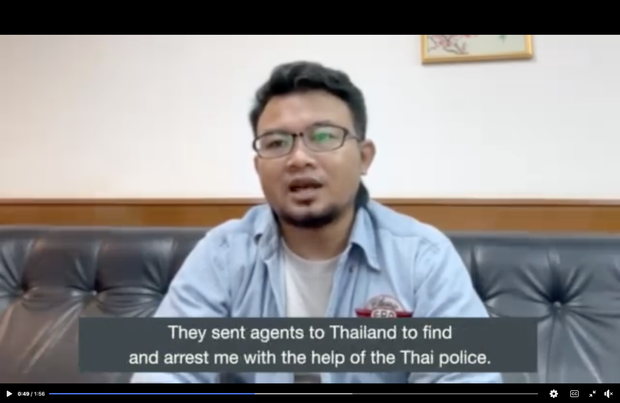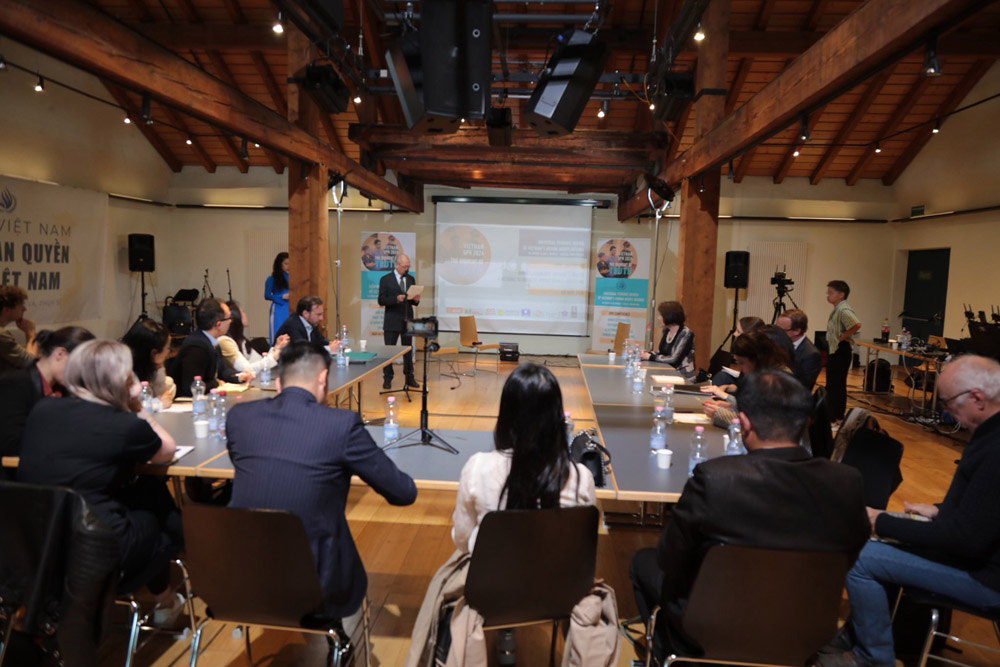Mr Valdis Dombrovskis
Commissioner-Designate for Trade
Mr Josep Borrell Fontelles
High Representative for Foreign Affairs and Security Policy / Vice-President of the European Commission
cc :
Mr David Sassoli, President of the European Parliament,
Ms Madeleine Tuininga, Multilateral Trade and Sustainable Development Policy, Green Deal, Conflict Minerals, DG Trade
Mr Gunnar Wiegand, Managing Director for Asia, EEAS
Ms Paola Pampaloni, Director, Deputy managing Director for Asia, EEAS
Mr David Daly, Head of Unit for South-East Asia, EEAS
Mr Denis Redonnet, Chief Trade Enforcement Officer
Mr Giorgio Aliberti, Head of the EU Delegation to Vietnam
Mr Michael Clauss, Head of the Permanent Representation of Germany to the EU
Regarding: Human rights in Vietnam
Brussels, the 25th of September 2020
Dear High Representative for Foreign Affairs and Security Policy,
Dear Commissioner-Designate,
On February 12 2020, the European Parliament gave its consent to the EU-Vietnam Free Trade Agreement and Investment Protection Agreement. On March 30 2020, the Council gave its final green light to both deals. On June 8, the Vietnam’s National Assembly ratified the texts, paving the way for the agreements to take effect on August 1.
Despite the consent, the Members of the European Parliament highlighted caveats regarding the situation of Human rights[1]. Indeed, we “recalled the demand of 15 November 2018[2], notably with respect to the reform of the penal legislation, the death penalty, political prisoners and fundamental freedoms. [We]; urge[d] the Parties to make full use of the agreements in order to improve the urgent human rights situation in Vietnam, and underline[d] the importance of an ambitious human rights dialogue between the EU and Vietnam.” .
We hoped that “the entry into force of the agreement [would] create the conditions for a major and fruitful cooperation between the two parties with a view to the effective implementation of the provisions on sustainable development, which could bring about the improvement of the political and human rights situation in the country”.
Yet, despite a reform of the Labour Code and progress towards the ratification of ILO Conventions, an increasing number of alarming news have been reported since then[3].
Arrests of bloggers, and journalists and perceived government critics continued and even intensified over 2020. The arrest of Pham Chi Dung, former President of the Independent Journalists Association, for his outreach to the European Parliament brought about a letter of the President of the European Parliament to the Prime Minister of Vietnam. The response received was disappointing, failed to address the substance of the case and compared limitations to freedom of expression in the EU to those in place in Vietnam.
He is just one of the many perceived critics who are routinely harassed, arrested, charged and prosecuted under the infamous Article 109, Article 117 or Article 331 of the Penal Code which were repeatedly denounced by the European Parliament as well as by several EU member states during Vietnam’s latest scrutiny at the UN Human Rights Council. Activists are accused of subversion, spreading anti-state propaganda, « abusing the rights to democracy and freedom to infringe upon the interest of the state » and « acting to overthrow the people’s government ».
People willing to enjoy their freedom of religion and belief independently are still persecuted by the authorities and the police on the ground that they are undermining national unity.
Routine land grabbing is often the root cause of violence. It triggered tragic events in Dong Tam last January. The police assaulted with excessive force the village where villagers complained about wrongful land confiscation. A number of defendants reported that they were forced to confess under torture. Two have been sentenced to death, and dozens others were convicted.
Once in custody, defenders charged with political offense or highly sensitive issues such as the Dong Tam clash incident have no or no meaningful contact with their lawyers and families. They are often subject to thug violence, torture or other ill-treatment, and their speed-light trials do not meet basic standards of impartiality, fairness and independence of courts. Forced confessions in front of TV cameras also regularly happen.
Many rights bloggers, activists, and anti-communist political campaigners and sometimes the relatives of these people who had to flee abroad are still being subjected to intrusive surveillance, harassment, intimidation or travel bans.
We cannot also ignore the pressure faced by social networks like Facebook to restrict access to content which the Vietnamese Government has deemed to be illegal and their compliance to act accordingly[4].
These and other developments in Vietnam serve as a powerful reminder for the importance to conduct human rights impact assessments, the lack of which was labelled as a case of maladministration by the EU ombudsman[5]. Such an analysis could have pushed EU negotiators to ask for concrete reforms benefiting all the Vietnamese prior to the conclusion of the talks. It is now time to remedy the past mistakes.
In this worrying context and because we fear a worsening of the situation in the run-up to the 13th National Congress of the Communist Party in January 2021 all available tools should be used to trigger meaningful and positive human rights changes in Vietnam. In particular, in accordance with the abovementioned EP accompanying resolution, we urge that you:
- Intensify dialogue with the Vietnamese authorities at the highest levels to urge them to take concrete steps to address the deteriorating human rights situation in the country, including by urgently releasing all those jailed solely for the peaceful exercise of their freedom of expression and by committing to undertaking concrete reform of the penal code and other repressive legislation, living up to their bilateral and international commitments, and articulate consequences for lack of action;
- Urgently pursue the establishment of an independent monitoring mechanism on human rights and an independent complaints mechanism, providing affected citizens and local stakeholders with effective recourse to remedy, and a tool to address potential negative impacts on human rights, notably through the application of the state-to-state dispute settlement mechanism to the TSD chapter;
- Urge the setting up of the Domestic Advisory Groups and warn the Vietnamese authorities against any undue interference in the composition and functioning of the body as well as against any possible threat or retaliation against its selected members;
- Report to Parliament on Vietnam’s commitment to making progress on a series of human rights issues;
- Remind your Vietnamese counterparts of the legally binding link between the PCA and the EVFTA, and of the possibility to trigger the human rights clause to partly or wholly suspend the deals in case of continued lack of progress by the Vietnamese authorities.
Looking forward to hearing from you,
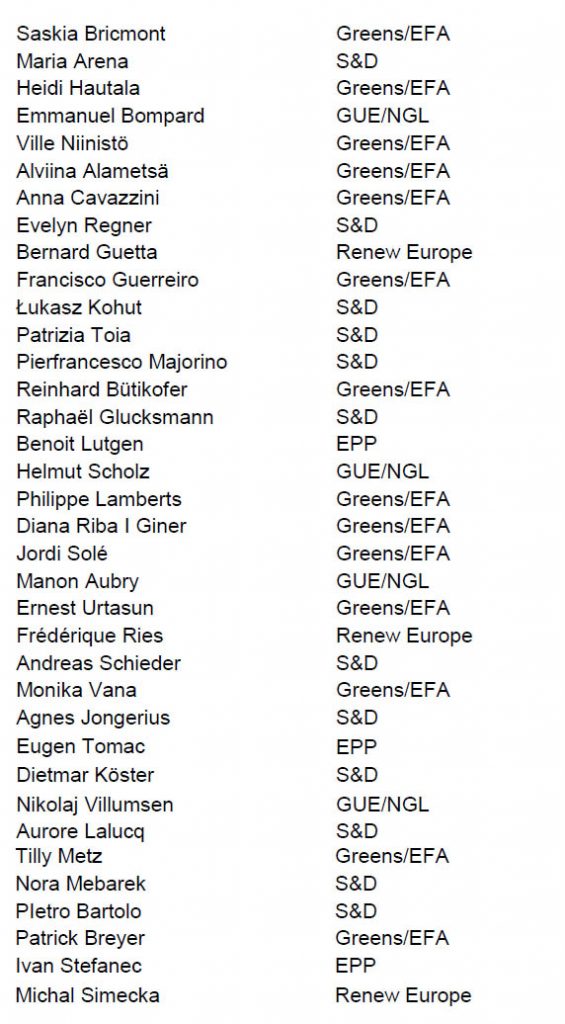
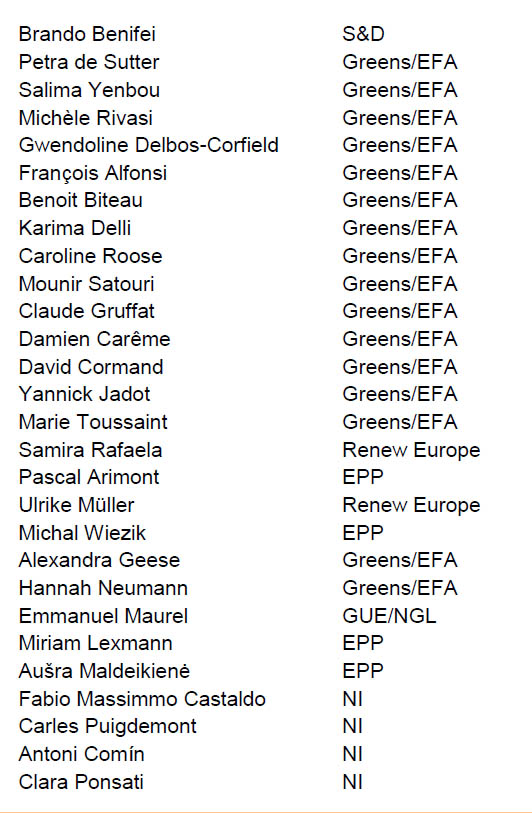
[1] https://www.europarl.europa.eu/doceo/document/TA-9-2020-0027_EN.html
[2] https://www.europarl.europa.eu/doceo/document/TA-8-2018-11-15_EN.html
[3] https://www.hrw.org/news/2020/06/19/vietnam-crackdown-peaceful-dissent-intensifies
[4] https://www.reuters.com/article/us-vietnam-facebook-exclusive/exclusive-facebook-agreed-to-censor-posts-after-vietnam-slowed-traffic-sources-idUSKCN2232JX
[5] https://www.ombudsman.europa.eu/en/opening-summary/en/54682
The original pdf letter can be read here.
Source: Saskia Bricmont


